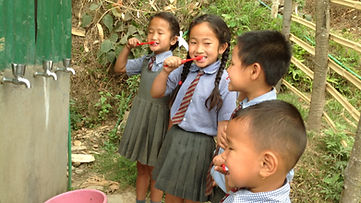

Tealeaf: Teacher-Led Mental Health Care for Youth
Tealeaf
Teachers Leading the Frontline
Tealeaf is a mental and behavioral health intervention improving children's mental health care by meeting them where they are, every day by task shifting child mental health care to Primary School teachers and bringing mental health care into the classroom.

Teacher Delivered Mental Health Care
In our model, teachers are trained and coach to use therapeutic tools in their everyday interactions with students.
Tealeaf turns moments of informal support into “micro-doses” of care that accumulate throughout the school year.

Everyday Mental Health Care
Tealeaf transforms care from the traditional model of weekly therapy session to “micro-doses” of support delivered by teachers in real-time.

Mental Wellbeing Fostered by Teachers
Teachers provide an environment where children can flourish

Community-Initiated Care
Traditional mental health care cannot meet the needs of underserved communities. Tealeaf expands the mental health skills of teachers who are already engaged in the lives of their students.

Tealeaf offers a proven solution. By empowering teachers to meet youth where they are - in school - youth receive consistent mental health support in a familiar, everyday environment.